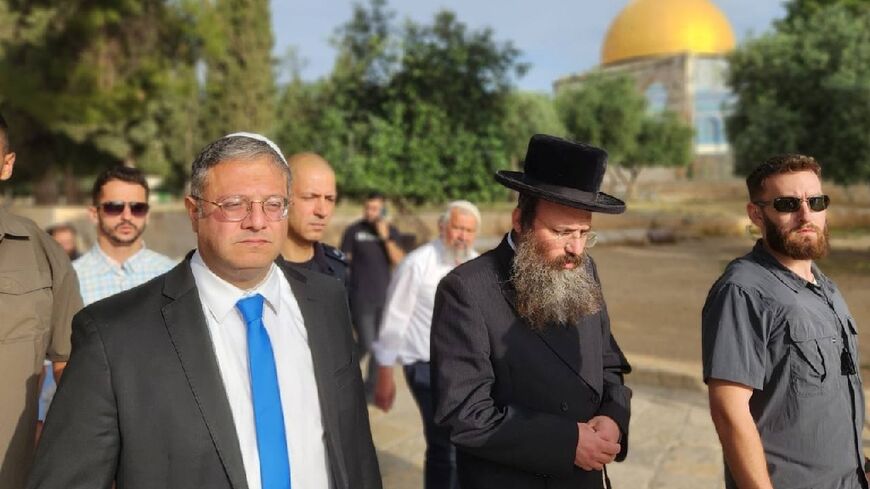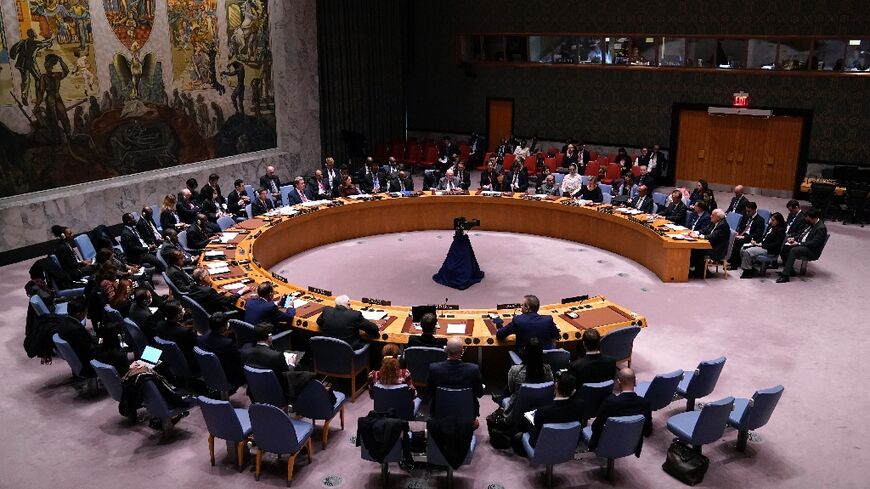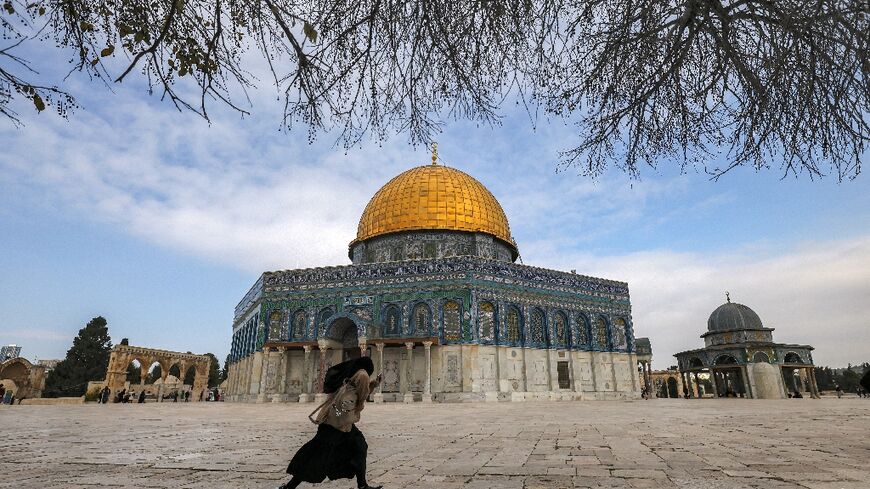US leads criticism of Israel minister for Al-Aqsa visit

The United Nations and the United States led a chorus of international criticism of a visit by Israel's extreme-right new national security minister to Jerusalem's super-sensitive Al-Aqsa mosque compound on Tuesday.
The move by firebrand Itamar Ben-Gvir angered the Palestinians and US allies in the Arab world, while Western governments warned such moves threaten the fragile status quo at Jerusalem's holy sites.
"Our government will not surrender to the threats of Hamas," Ben-Gvir vowed in a statement published by his spokesman, after the Palestinian militant group warned such a step was a "red line".
Late Tuesday, militants in Hamas-ruled Gaza fired a rocket towards Israel, but it fell short and hit the ground inside the Palestinian enclave, the Israeli army said.
Ben-Gvir's visit comes days after he took office as national security minister, with powers over the police, giving his decision to enter the highly sensitive site considerable weight.
Al-Aqsa mosque is the third-holiest place in Islam and the most sacred site to Jews, who refer to the compound as the Temple Mount.
Under a longstanding status quo, non-Muslims can visit the site at specific times but are not allowed to pray there.
In recent years, a growing number of Jews, most of them Israeli nationalists, have covertly prayed at the compound, a development decried by Palestinians.
The UAE and Morocco, which established diplomatic ties with Israel in 2020, both spoke out against Ben-Gvir's action.
Abu Dhabi "strongly condemned the storming of Al-Aqsa Mosque courtyard by an Israeli minister". Rabat appealed for "avoiding escalation and unilateral and provocative actions."
White House Press Secretary Karine Jean-Pierre said that a change to the status quo of Jerualem's holy sites would be "unacceptable".
State Department spokesman Ned Price said the United States was "deeply concerned" by Ben-Gvir's visit, which could "provoke violence."
A United Nations spokesman said Secretary General Antonio Guterres called "on all to refrain from steps that could escalate tensions in and around the holy sites".
Germany's ambassador to Israel said the status quo "has long helped maintain the fragile peace and security around the holy sites" and urged all sides to avoid actions that could raise tension.
Lying in the walled Old City of Israeli-annexed east Jerusalem, the compound is administered by Jordan's Waqf Islamic affairs council, with Israeli forces operating there and controlling access.
After his visit, Ben-Gvir vowed to "maintain the freedom of movement for Muslims and Christians, but Jews will also go up to the mount, and those who make threats must be dealt with -- with an iron hand".
- 'Serious threat' -
The politician has lobbied to allow Jewish prayer in the compound, a move opposed by mainstream rabbinical authorities.
Israel's Sephardi chief rabbi, Yitzhak Yosef, wrote to Ben-Gvir on Tuesday.
"What will people say when they see a minister, an observant Jew, who flouts the position of the rabbinate?" he asked.
Jordan's foreign ministry spokesman Sinan Majali said Amman summoned the Israeli ambassador, to "convey a protest message about the recklessness of the Israeli national security minister in storming the blessed Al-Aqsa mosque".
Saudi Arabia, home to the holiest sites in Islam, condemned the "provocative practices" of Ben-Gvir.
Israel's arch-foe Iran called the visit a "violation of international regulations and an insult to the values and sanctities of the Muslims."
Hassan Nasrallah, head of Iran-backed Lebanese militant group Hezbollah, said Israel's "attack" on the Jerusalem holy site "will not only blow up the situation inside Palestine, but may blow up the entire region".
While Ben-Gvir has visited the compound numerous times since entering parliament in April 2021, his presence as a top minister is highly significant.
A controversial visit in 2000 by then opposition leader Ariel Sharon was one of the main triggers for the second Palestinian intifada, or uprising, which lasted until 2005.
The Palestinian foreign ministry called Ben-Gvir's visit a "serious threat".
Hamas spokesman Hazem Qassem deemed it a "crime" and vowed the mosque compound "will remain Palestinian, Arab, Islamic".
- 'Negative consequences' -
Hamas rules the Gaza Strip. In May 2021 an 11-day war broke out between Palestinian militants based in the territory and Israel, after violence at Al-Aqsa mosque.
Egypt -- which serves as a mediator in Gaza -- warned "of the negative consequences of such actions".
For years seen as a fringe figure, Jewish Power leader Ben-Gvir entered mainstream politics with the backing of Prime Minister Benjamin Netanyahu, whose office on Tuesday said Netanyahu is "committed to strictly maintaining the status quo, without changes" at the holy site.
Ben-Gvir has advocated for Arab-Israelis deemed disloyal to the state to be expelled and for the annexation of the occupied West Bank.
Until a few years ago, he had a portrait in his living room of Baruch Goldstein, who massacred 29 Palestinian worshippers at a Hebron mosque in 1994.








